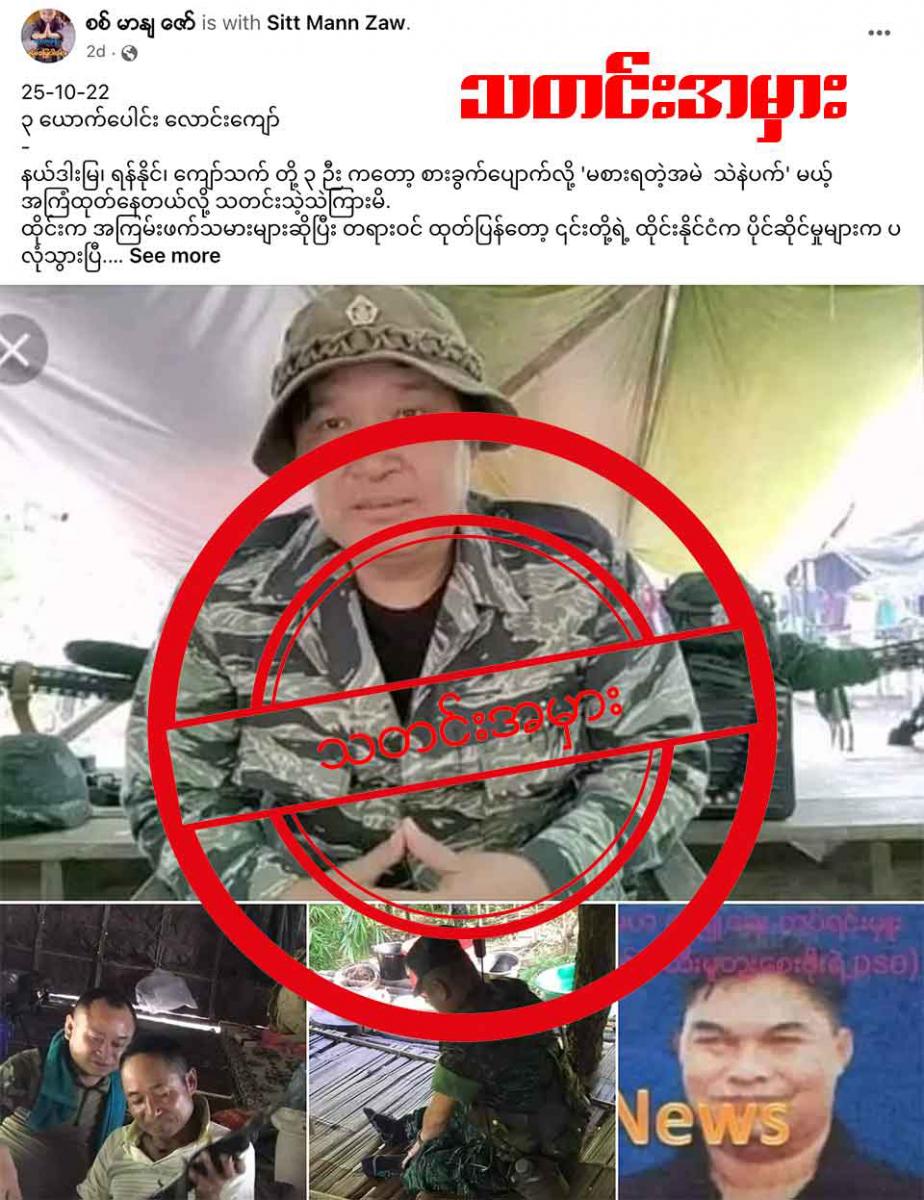A Facebook account named Sit Man Zaw uploaded a post on October 24 which claimed that Thai authorities issued a warrant for Kawthoolei Army leader Saw Ne Damya, KNU/KNLA Lieutenant Colonel Saw Yan Naing, and Captain Kyaw Thet.
The post of Sit Man Zaw Facebook account was written as, “When they committed acts of vandalism on Asian roads and terrorized Kawkareik, Thailand, whose self-interests were affected had issued a warrant for them and put it on the billboard. There is no place for them to run. That’s all”.
In fact, that was just misinformation. The Thai government had not issued arrest warrants for Kawthoolei Army leader Saw Ne Damya, KNU/KNLA Lieutenant Colonel Saw Yan Naing, and Captain Kyaw Thet.
If the Thai government had issued a warrant, reliable Thai media outlets would had reported about that. And there would be uproar among the Karen community.
But so far, no media has reported about it yet.
Thai PBS (https://bit.ly/3TPUyPZ & https://bit.ly/3TLCFlc) which usually broadcasts news about Myanmar's ethnic armed organizations (EAOs), and other Thai news outlets did not report on the matter.

KIC (https://bit.ly/3WdAHvR), a Karen news agency based in Karen State, also did not report such news either.
Misinformation like the Thai government had arrested (or) issued warrants for the Karen revolution leaders, or the death of Karen leaders and false news like Karen leaders sexually exploited women or sold them to traffickers were intentionally distributed on Facebook and other social media platforms both before and aftermath of the coup.
After fact-checking, it was revealed that the Sit Man Zaw Facebook account was spreading misinformation and propaganda by fabricating a case that did not actually happen.
Nowadays, it can be seen that misinformation related to NUG, CRPH and ethnic armed organizations, misinformation related to the dialogues between the Junta leaders and ethnic leaders, false news intended to distribute hate speech and to ignite conflicts between the different races are being deliberately spread online.
When disseminating such false news, old photos are occasionally used to mislead the readers. Sometimes photos, videos and written content are irrelevant.
In the current period of political instability, there are people who spread misinformation online in various forms. So, it is best to first check the news from reliable media outlets, before sharing sensitive news online.







